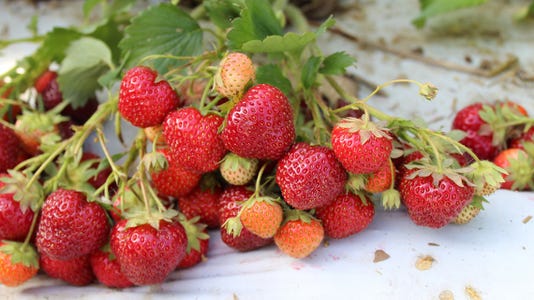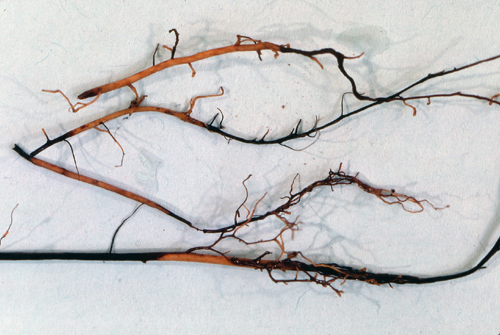More results for disease resistance with the use of calcium silicate – this time with strawberries

In this study, calcium, potassium, and sodium silicate are tested against a common synthetic fungicide for black root rot disease suppression in strawberries. The short story is calcium and potassium silicates are tied in the end for effectiveness, and each achieves an equal or greater resistance in the infected strawberry plants tested against the synthetic fungicide. But granted the high pH of potassium silicate (and higher cost) we at Canadian Wollastonite declare calcium silicate the winner!

All applied silicates in this study modified protein expression to improve biochemical disease tolerance which confirms the fascinating insight that silicon works both at a physiological level, re-enforcing cell walls to make fungal penetration into the cell more difficult, as well as up-regulating the plant’s immune system to handle pathogenic invaders.
This is another one for the archive as we build the largest collection around of current research on the practical and cost-effective applications for a unique white mineral for a greener world.
Photo credits:
Articles
Canadian Wollastonite Joins UNDO to Help Canadian Farmers and Combat Climate Change October 25, 2023
Adding silicon to soil can help control clubroot in canola August 16, 2023
Got calcium? Mineral key to restoring forests July 11, 2023
